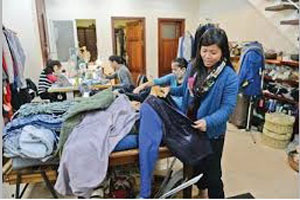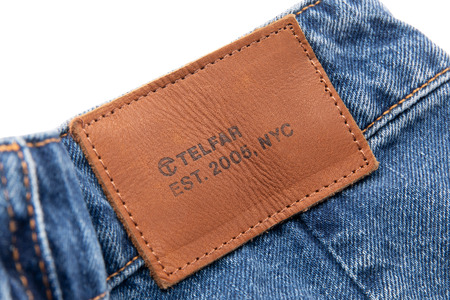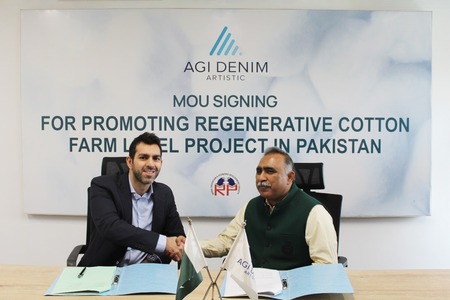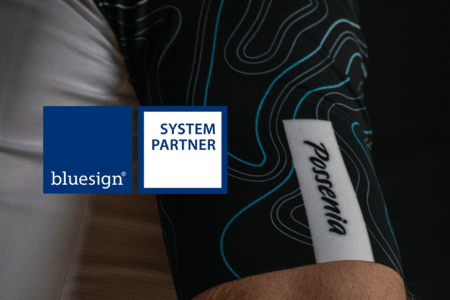
Vietnam designers trying to transform fast fashion to ethnic
YarnsandFibers News Bureau 2016-04-08 14:00:00 – HanoiA new crop of Vietnamese designers are trying to transform the Made in Vietnam label and save the country's rich ethnic heritage from the long monopoly of cheap and fast fashion manufacturing. The Vietnam’s new ethical fashion movement is an approach to design that seeks to maximize benefit to communities while minimizing environmental harm.
Vietnamese designer Thao Vu from remote hills of Cao Bang, north of the capital Hanoi has been tapping into this growing global trend by working with some of Vietnam's 54 ethnic minority groups, each of which have their own unique textiles and traditional clothing designs.
Thao inspired from Nung women in Phuc Sec village, who use natural dyes and weave on hand looms now uses traditional roots and leaves to colour organic silk, cotton, and hemp, which are also manufactured from scratch, in a range of hues from deep indigo to pale grey, and earthy oranges and browns.
Vietnam has in recent decades become a hub for massive garment factories that churn out reams of cheap clothes as quickly as possible for fashion giants like Zara, Mango and H&M.
The multi-billion dollar sector has helped drive impressive economic growth but also drawn criticism for weak environmental and labour rights regulations. The products made by the country's traditional fabric spinners are inherently eco friendly -- made with natural dyes and textiles, not harsh chemicals or synthetic fibres.
The local women who work with her, such as Luong Thi Kim, 40, said that they too have benefited from the colloboration. Earlier they weaved for personal use but now they weave which go to other countries.
Jimmy Lepore Hagan, vice president of strategy for high-end US clothing line Nanette Lepore, said that he's considering a collaboration with Fashion4Freedom, which also sells luxury jewelry and apparel.
The head of Vietnam's handicraft export association, Le Ba Ngoc, sees linking Vietnamese artisans with overseas fashion designers as a chance to embrace more sophisticated designs -- what he says is the weak link in the handicraft chain. It's the major factor holding back foreign and domestic sales. Ensuring consistent quality is also a problem. But his organization is trying to work with ethnic groups to find ways to modernize their techniques.
Market Intelligence
Ask for free sample Report

experience
Customer Base
dedicated team
Countries Served Worldwide









